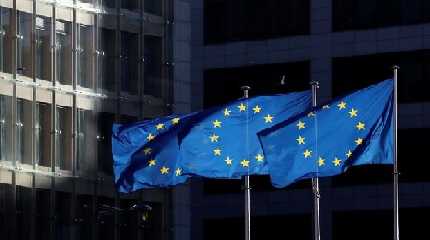
BRUSSELS, Sept 30 (Reuters) - European Union countries on Friday edged towards agreeing what would be the bloc's eighth round of sanctions against Russia for waging war against Ukraine, diplomatic sources told Reuters.
The EU executive earlier this week recommended that the bloc imposes more trade curbs and individual blacklistings, and moves towards - rather than adopting straightaway - a price cap for Russian sea-borne oil deliveries to third countries, mostly insured by European companies.
The 27 EU countries' envoys to Brussels discussed the proposal on Friday and several sources said they hoped for a final approval next week.
"The willingness to go ahead is high, we want to be ready as soon as possible because of everything that is going on," said one senior EU diplomat, who spoke on condition of anonymity.
Sources said Russia's state-controlled diamond miner Alrosa (ALRS.MM), as well as the head of the Russian Orthodox Church, Patriarch Kirill, were put forward for blacklisting - moves previously opposed by, respectively, diamond trading hub Belgium, and Hungary.
New import sanctions would cover steel and steel products, paper and timber, while exports of more tech equipment and services to Russia would be barred, they added.
The 27 need unanimity to impose sanctions and, should their differences prove too difficult to overcome, the matter would go to the bloc's national leaders' meeting in Prague on October 6-7.
Hungary is the most vocal critic of sanctions against Russia in the EU, which was galvanised by Moscow's fresh escalation in the seven-month war: military mobilisation, nuclear threats and moving to formally annex a large part of occupied Ukraine.
The oil cap, which would be implemented if and when the G7 most industrialised countries put in place their own, would still require unanimous approval of any particular price ceiling from each EU country, the sources said, a way to bring on board Hungary and others.
Hungary, which cooperates with Russia on nuclear power, said earlier this week it would block any new energy sanctions.




